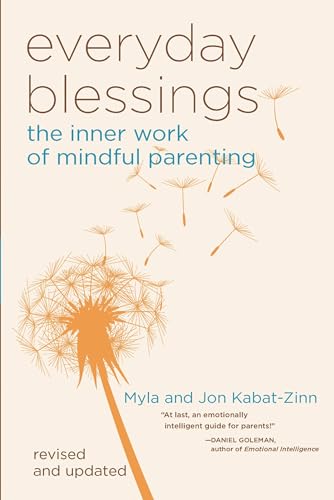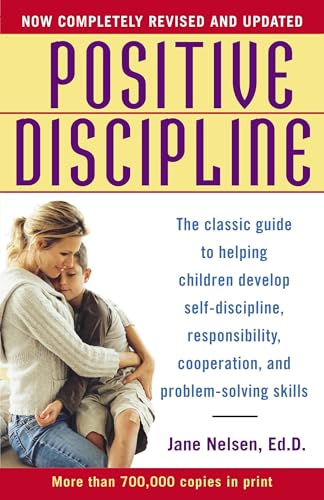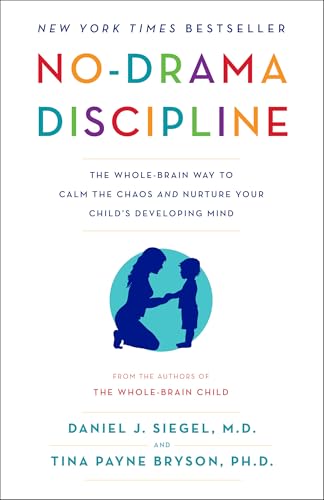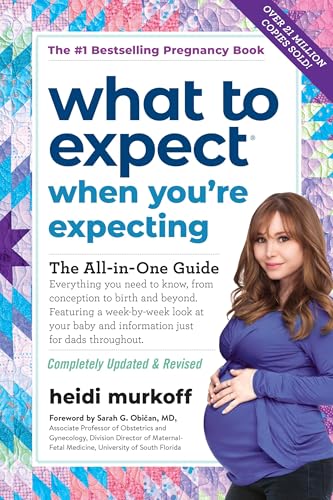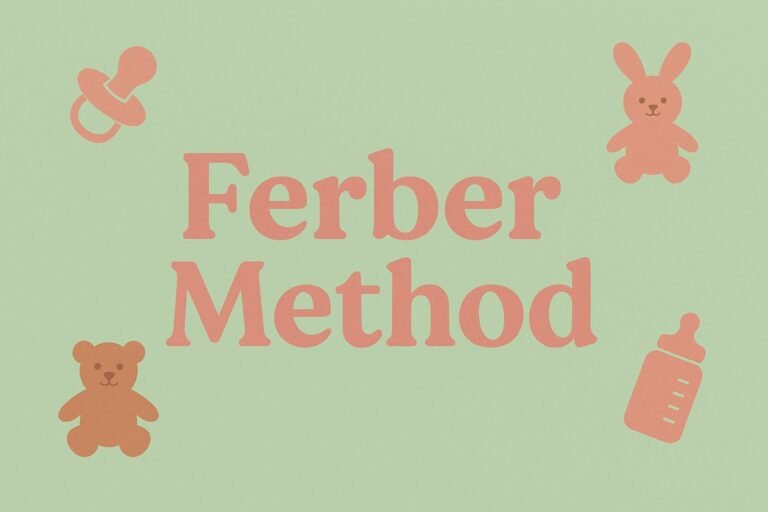I am sure that we all agree that while parenting is definitely one of the most rewarding experiences in life, it is also the most challenging one. Whether you’re raising a newborn, navigating the terrible twos, or guiding teenagers through adolescence, having the right resources can make all the difference. That’s why I’ve compiled this list of the best parenting books that combines expert wisdom with practical advice that you can immediately implement.
After extensive research and drawing from my 12 years of parenting experience with my two wonderful boys, I’ve put together this guide to the top parenting books that consistently rank as bestsellers and receive positive reviews from parents like you and me. From newborn care to neurodivergent parenting and everything in between, these great books on parenting offer invaluable insights for every family situation. They become a must-have in your virtual village for raising a child.
Let’s dive into these exceptional reads that can transform your parenting journey.
Disclosure: This post contains affiliate links. As an Amazon Associate, I earn from qualifying purchases. I may earn a commission if you click and make a purchase, at no extra cost to you.
Table of Contents
1. “How to Talk So Kids Will Listen & Listen So Kids Will Talk”: Best for Communication Skills
This timeless classic by Adele Faber and Elaine Mazlish remains one of the best books on parenting for a reason. Based on solid psychological principles yet written in an accessible, practical style, “How to Talk So Kids Will Listen & Listen So Kids Will Talk” provides parents with communication tools that work like magic, even with the most stubborn kids.
The authors share real-life scenarios and provide step-by-step guidance on handling everything from tantrums to eye-rolling teenagers. What sets this book apart is its focus on preserving children’s self-esteem while setting boundaries. Rather than using traditional punishment-based approaches, Faber and Mazlish offer alternatives that help children develop internal motivation to behave well.
With millions of copies sold worldwide and translations into over 30 languages, this book has proven its effectiveness across cultures and generations. The engaging comic-strip style illustrations and practical exercises make it easy to implement the strategies immediately.
What I Loved About This Book
As a parent who’s struggled with getting my boys to actually hear what I’m saying (not just listening while continuing to do whatever they want), this book was a game-changer. The simple shift from saying “Don’t run!” to “Please walk” might seem minor, but the difference in response was remarkable.
2. “The Whole-Brain Child”: Best for Understanding Child Development
Renowned neuropsychiatrist Daniel J. Siegel and parenting expert Tina Payne Bryson have created one of the best books for new and experienced parents alike. This groundbreaking work explains how a child’s brain is wired and how you can nurture its development through everyday interactions.
“The Whole-Brain Child” demystifies child behavior by explaining the science behind emotional outbursts, irrational reactions, and learning difficulties. Siegel and Bryson provide 12 revolutionary strategies for nurturing your child’s developing mind, helping them become resilient, adaptive, and emotionally intelligent. This is particularly aligned with the gentle parenting style that is becoming increasingly popular nowadays.
What makes this book particularly valuable is its blend of cutting-edge neuroscience with practical parenting advice. You’ll learn why your child might have meltdowns and, more importantly, how to respond in ways that promote brain development.
What I Loved About This Book
Finally understanding why my younger son couldn’t “just calm down” during his meltdowns was eye-opening. The “connect-and-redirect” strategy helped me move from frustrated to effective during challenging moments.
3. “Parenting with Love and Logic”: Best for Discipline Strategies
Foster Cline and Jim Fay’s approach to parenting delivers one of the most effective discipline systems available. Their philosophy centers on raising responsible kids by teaching them to make choices within limits and experience the natural consequences of their decisions.
“Parenting with Love and Logic” stands out among other parenting books because it eliminates the angst and guilt associated with discipline. Instead of constant battles and power struggles, you’ll learn how to set loving limits while allowing children to learn through experience. The “Love and Logic” approach works for kids from toddlers through teenagers.
The practical examples and step-by-step guidance make it easy to implement these strategies immediately. Parents who have read this book report fewer arguments, better cooperation, and children who take more responsibility for their actions.
What I Loved About This Book
The “energy drain” technique for handling whining was brilliant. Instead of getting caught in debates, I could simply say, “That really drains my energy. I’ll need you to help me feel better by…”, and suddenly chores became solutions rather than punishments.
4. “Everyday Blessings”: Best for Present-Moment Awareness
In our fast-paced, technology-driven world (as much as I don’t like these words because they sound like cliches, that’s what our world actually is), Jon Kabat-Zinn and Myla Kabat-Zinn’s approach to mindful parenting offers a refreshing perspective. “Everyday Blessings” helps parents cultivate moment-to-moment awareness in their relationships with their children, leading to deeper connections and more intentional parenting.
The authors, both long-time practitioners of mindfulness meditation, show how bringing conscious awareness to parenting can transform challenging situations into opportunities for growth. You’ll learn to respond rather than react, listen deeply, and appreciate the present moments with your children.
But this isn’t just about meditation – it’s about being fully present with your kids, understanding their perspectives, and creating an environment where they feel truly seen and heard.
What I Loved About This Book
Taking five mindful breaths before responding to my older son’s endless “why” questions completely changed our interactions. Instead of rushing through answers to get back to my tasks, I found myself genuinely enjoying his curiosity and our conversations.
5. “Positive Discipline”: Best for Behavior Management
Jane Nelsen’s “Positive Discipline” series represents some of the best parenting books available for establishing healthy boundaries while maintaining mutual respect. Based on Alfred Adler’s psychology, this approach focuses on understanding the root causes of misbehavior and addressing them constructively.
The book provides an arsenal of tools (because parenting might sometimes feel like a battle) for encouraging cooperation without using punishment or permissiveness. You’ll discover how to use family meetings, logical consequences, and routine charts to create a more harmonious home environment. The strategies work remarkably well for children of all ages, temperaments, and cultures.
What sets this apart from other parenting styles is its emphasis on teaching children valuable life skills while solving problems together. It’s not about control, it’s about connection and mutual respect.
What I Loved About This Book
Our weekly family meetings became our secret weapon. Even my 7-year-old started proposing solutions to family challenges, and the sense of teamwork was amazing. Plus, the chore system we developed together actually worked!
6. “No-Drama Discipline”: Best for Emotional Regulation
Building on their success with “The Whole-Brain Child,” Daniel J. Siegel and Tina Payne Bryson created another essential read focusing specifically on discipline without the drama. “No-Drama Discipline” provides practical strategies for staying calm during your child’s emotional storms while teaching valuable lessons.
The key insight is understanding that discipline isn’t about punishment, it’s about teaching. The authors show how to respond to misbehavior in ways that build children’s brains, help them develop self-control, and strengthen the parent-child bond.
The connect-first approach transforms challenging moments into opportunities for teaching and connection. You’ll learn to recognize when your child needs comfort vs correction and how to deliver both in the most effective manner.
What I Loved About This Book
The insight that behind every behavior is a need helped me shift from punitive responses to curiosity and support. When my sons drew on the walls, instead of immediately scolding, I discovered he was bored and needed creative outlets.
7. “Raising an Emotionally Intelligent Child”: Best for Emotional Development
Dr. John Gottman, renowned relationship researcher, applies his scientific approach to parent-child relationships in this outstanding work. If you’re looking for the best parenting books on emotional intelligence, this is your go-to resource.
“Raising an Emotionally Intelligent Child” introduces “emotion coaching” – a proven method for helping children understand, label, and manage their feelings. Gottman’s research shows that children who receive emotion coaching have better social skills, fewer behavior problems, and higher academic achievement.
As a parent struggling with your child’s emotions, you’ll learn how to recognize emotions as opportunities for connection, acknowledge and validate feelings, and help children solve problems independently. The practical exercises and real-world examples make it easy to become an emotion coach yourself.
What I Loved About This Book
Finally learning how to validate my sensitive son’s big emotions without dismissing them was life-changing. The simple phrase “I can see you’re really upset because…” made him feel understood in a way I hadn’t achieved before.
8. “The 5 Love Languages of Children”: Best for Connection Building
Gary Chapman and Ross Campbell’s adaptation of the bestselling “5 Love Languages” specifically for parent-child relationships offers invaluable insights into how children give and receive love. Understanding your child’s primary love language can transform your relationship with them.
The five languages – words of affirmation, physical touch, quality time, gifts, and acts of service – provide a framework for connecting deeply with your child. Many parents find that recognizing their child’s love language explains previously mysterious behaviors and reactions.
“The 5 Love Languages of Children” includes practical tips for identifying and speaking each love language in addition to age-specific guidance for toddlers through teenagers. It’s particularly helpful for parents who are feeling disconnected from their children despite their best efforts to build an emotional relationship.
What I Loved About This Book
Discovering that my older son’s love language is quality time explained so much. No wonder expensive gifts didn’t mean as much to him as our one-on-one time building Legos or reading books together. This insight transformed our relationship.
9. “What to Expect When You’re Expecting”: Best for Pregnancy and Newborn Care
While not traditionally categorized as a parenting book, Heidi Murkoff’s classic guide remains one of the best books for new parents preparing for the journey ahead. This comprehensive resource covers everything from conception through the first few weeks of parenthood.
The conversational tone and month-by-month organization of “What to Expect When You’re Expecting” make it easy to find information exactly when you need it. What sets it apart is its ability to address both the medical aspects of pregnancy and the emotional journey of becoming a parent.
Updated regularly to reflect the latest medical research and parenting trends, this book continues to be a trusted companion for millions of expectant parents worldwide.
What I Loved About This Book
During my anxiety-filled first pregnancy, this book was my constant companion. Having practical answers to questions like “Is this normal?” at my fingertips provided immense peace of mind during those overwhelming early months.
10. “Uniquely Wired”: Best for Neurodivergent Parenting
Julia Cook’s compassionate guide addresses the unique challenges and joys of raising neurodivergent children, including those with ADHD, autism, anxiety, and other differences. This is one of the few parenting books that specifically focuses on neurodivergent parenting needs.
“Uniquely Wired” provides practical strategies for supporting children whose brains work differently, while celebrating their unique strengths. Cook offers guidance on everything from school advocacy to managing sensory sensitivities and executive function challenges.
What makes this neurodivergent parenting book exceptional is its balanced approach – acknowledging the difficulties and simultaneously emphasizing the incredible gifts that come with neurodiversity. It helps parents shift from trying to “fix” their children to supporting them in being their authentic selves.
What I Loved About This Book
The reframing of my friend’s son’s ADHD from a deficit to a different operating system changed everything about our family’s relationship with theirs. The strategies for using his hyperfocus to his advantage in playing with my kids helped all of us create a sense of flow and enjoyment.
Final Thoughts
These 10 suggestions represent some of the must-have parenting books available today, offering a comprehensive toolkit for raising happy, healthy, confident children. From communication strategies to discipline techniques, from emotional intelligence to special needs support, these resources cover the full spectrum of parenting challenges.
Remember, the best books on parenting are those that resonate with your family’s unique needs and values. Whether you’re dealing with sleepless nights, behavioral challenges, or simply wanting to deepen your connection with your children, these books provide evidence-based strategies you can implement right away.
Which of these parenting books has made the biggest difference in your family life? Are there other titles you’d recommend to fellow parents? Your experiences could help countless other families on their parenting journey. I’d love to hear from you in the comments.





